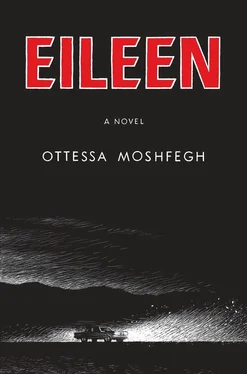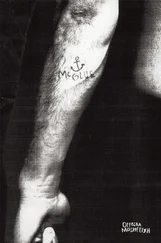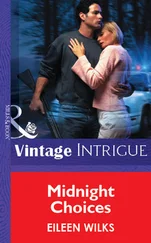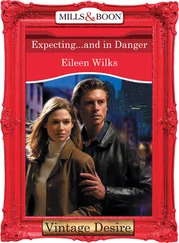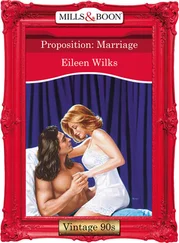As though God were listening, when I passed Bayer Street, a long spotlight came on and fell on a nativity scene set up on the snow at the foot of a small hill. I watched an elderly woman swing open the heavy arched door of Saint Mary’s at the top and disappear inside. It was the church my father attended every Sunday. I pulled over to take a closer look at the scene, unsure of what was motivating my curiosity. The nativity was simple, just dolls stuck in the snow in front of a piece of brown wooden fencing not more than two feet high. Mary knelt beside Joseph. They were both clothed in burgundy robes tied with twine. There was something wrapped in gold cloth in Mary’s arms. I got out of the car. I was inspired.
The nativity figures were made of painted wood and were actually quite beautiful, I thought. I’d loved dolls as a child, but when I turned six my mother collected them and threw them away. The figure of Mary had a wide grin on its face. When I approached it and stood on the cleared sidewalk, I saw that the mouth had been defaced. Someone had painted over it with what looked like bright red lipstick. Black marker crisscrossed within the lips turned her smile into a jack-o’-lantern smirk. It made me laugh. From inside the church I could hear them singing hymns, a piano jangling brightly above the soft and warbling voices. A child cried. I walked closer to the scene, marking my footsteps in the snow. The cloth wrapped around something meant to be the Baby Jesus was a thick, mustard-colored synthetic material, and it was affixed to Mary’s extended wooden arms with masking tape. I removed my gloves and fingered the tape. It was gummy from moisture, but the fabric was soft and satiny. The church music stopped. I listened as the pastor began to pray the liturgy. The sound of it filled me with dread, but that didn’t stop me from peeling the masking tape off Mary’s arms and yanking at the golden cloth. Underneath was an empty canister of motor oil. I was pleased. In the car, I wrapped the wine in Jesus’ blanket. It felt appropriate. I consulted the map and drove on.
Certain images come back to me now. For instance, the cemetery covered in snow, an iridescent blue light cast across its surface, the irregular pattern made by the tops of rounded gravestones peeking up out of the icy crust, and the long, shrinking shadows of trees. The sun having just set, the roads grew darker as I drove across town, streetlamps yellow and hazy, some just flickering. The homes got smaller and closer together. They were not the grand brick colonials of my own neighborhood, but the washed-out wooden trailer-size homes of the less well-to-do — the poor, to be blunt. Their homes were more like cabins, really, a shantytown style of cheap housing built on the coast. I passed a corner store whose windows were plastered in outdated ads for cigarettes and hand-drawn signs proclaiming the cost of bread, beer, eggs.
When I got to Rebecca’s street, I found only a few lights on in the sad, narrow houses. That area was nearer to the ocean, windier than my neighborhood, and the houses seemed to be crouched down, huddling close to the ground, hiding. There were chain-link fences around each yard, few cars in the driveways. I counted the house numbers. I couldn’t think why Rebecca would want to live in a neighborhood like that. Surely the prison was paying her well enough to get an apartment someplace nice. She appeared to be a woman of means — her clothes were fashionable and looked expensive. But even if she dressed in rags, it would have been clear that Rebecca was not a poor woman. You can see wealth in people no matter what they’re wearing. It’s in the cut of their chins, a certain gloss to the skin, a drag and pause to their responsiveness. When poor people hear a loud noise, they whip their heads around. Wealthy people finish their sentences, then just glance back. Rebecca was wealthy, and I knew it. That she lived in X-ville at all seemed strange. I’d expected she would have preferred to live somewhere more central, Boston or Cambridge, where there were intelligent and sophisticated young people, and art, things to do. Perhaps she hated the long commute. Anyway, what did I know? Perhaps Rebecca wasn’t a snob, and I was wrong to expect her to want to live so comfortably. Rolling down her block, I told myself the street did indeed have a dark charm to it. And I figured it took courage and a big heart for a rich woman like Rebecca to live amongst people who worked in factories and gas stations and on fishing boats, or not at all. I imagined the neighborhood was the place my father had done his best work, beating up teenagers, busting into houses full of drunken yelling, a room full of crying children, men with long hair, and fleshy, wrinkly women with rotted teeth and tattoos, wearing only underwear.
And then I found Rebecca’s house, a dark brown two-story home with white trim and a decrepit plant frozen at the top of the front steps. It was slightly less pathetic than the other houses on the block, at least. There were lights on in every window, music on inside loud enough that I could hear it from out in the car. I parked, rolled up my window, primped in the rearview mirror, and got out with my wine. Here my memory breaks down like a film in slow motion. I unlatched the gate and stepped into the yard. My black snow boots found a narrow path hastily cleared of snow, still icy. I walked carefully, not wanting to slip and fall and break the wine or look foolish. I was nervous. It had been a long time since I’d gone any place I wanted to be. Up the steps I saw a shadow move behind yellow curtains. I held the screen with my hip and knocked on the painted plywood door, which swung open as soon as I touched it.
“You made it!”
There she was. My Rebecca. She held in her arms a dirty white cat which clawed at her loose hair, then looked at me and hissed. “Never mind her, him,” she said. “It’s upset because its owner has been a little hysterical all day.”
“Hi,” I said, awkwardly. “Merry Christmas.”
“You know I nearly forgot it was Christmas? Come on in,” she said.
Rebecca dropped the cat with a heavy thud on the worn wood floor and it slunk away, hissing some more. She seemed agitated, too, Rebecca did, from the get-go. I felt like I might be intruding. I looked for a place to put down my things. The front hall had narrow, chipping maroon walls. An ugly metal railing led up the carpeted staircase which was particularly dirty, stray strands of the rug hanging off where the cat had pawed it.
“I brought wine,” I said, unfurling the golden fabric from the bottle and turning the label so Rebecca could read it.
“Well, aren’t you a peach,” she said. She had an odd way about her. She seemed tense and fake, but I liked what she was saying. “That was so thoughtful.” She pulled a cigarette from the pocket of her stained, white terrycloth bathrobe, which she wore over her clothes like a housecoat. I found that bizarre. Perhaps I’d arrived too early? “Don’t mind me,” she said. “I didn’t want to get my clothes dirty.” She gestured down at her robe. “Want one?” she asked, lighting her cigarette and handing me the pack. I took one, fumbling with my gloves and the wine and my purse. Rebecca lit it for me, her hand shaking as she gripped the lighter, eyes focused on the trembling flame when I looked up at her. The smell in the air was of cat piss and fresh cigarette smoke and old sweat. It reminded me of my father’s armchair. It was cold in that house, too. I kept my coat on.
“I’m sorry the place is such a mess,” she said. “I’ve barely made a dent in cleaning it, but here,” she motioned toward the kitchen. “Let’s sit down and open that wine.”
We passed by what looked like the living room — a wooden coffee table piled high with junk and unopened mail, a TV playing static, a pile of laundry spilled out across the couch. The walls were bare but for several lighter square spots in the dun-colored wallpaper where it was clear there’d been pictures hanging. The record player had on something ridiculous. Rachmaninoff or even Die Walküre come to mind, but it was more likely Pat Boone, corny love songs. The effect, nevertheless, was strangely morbid, foreboding. A telephone hung by the kitchen doorway, through which I could see one chair at a small enamel table, a sink full of dirty dishes, an opened package of sliced bread fanned across the yellowed linoleum counter. A clock whirred high on the wall over a calendar opened to May of 1962, a photo of a marine saluting, a chiseled chin. A trash can was set by the kitchen table, ready to catch the overflow of peanut shells piled up alongside empty cans of Schlitz. It seemed not unlike my own home. My senses were sharp, but the chaos of the place was buzzing with something I couldn’t immediately identify. Rebecca fidgeted with her hair. She seemed different. She seemed terribly uneasy. I felt I’d walked into a scene from a movie in which someone was going mad, the air heavy with suspense. I tried my best to look natural, smile, to read Rebecca’s stilted cues.
Читать дальше
